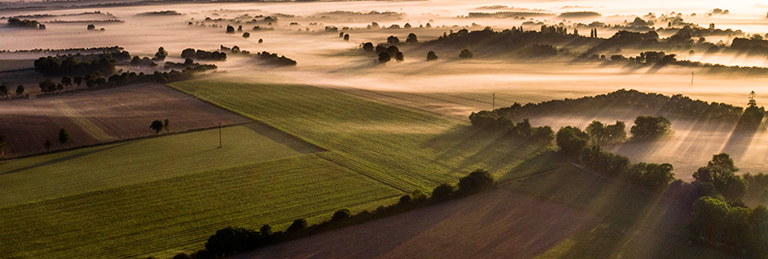Out of 1,600 exhibiting manufacturers, 500 of these industries arrived from abroad as did more than 26,300 visitors, 16% of the total, from 140 countries plus as many as 47 official foreign delegations.
The exhibition sponsored by the Italian manufacturers’ association Unacoma and organized by Unacoma Service came to a close yesterday afternoon to end an extraordinary schedule of more than 60 public events on technical, economic and policy issues aimed at gaining an understanding of the future of mechanization and the market trends in the various areas of the world.
Western markets are expected to remain in the red throughout 2010 with recovery coming in 2011 in the United States and Europe, those hit by the international crisis to show steep declines in 2009 sales and set to close the year with U.S. tractors sales down 5%, with a total of 147,000 units registered, and a 10% drop in Europe, with 144,000 tractors registered. Recovery arriving next year should include a 3% gain in the U.S., to reach 152,000 units, and plus 8% in Europe with 155,000 machines sold.
The forecasts were reported by the Agrievolution Economic Working Group the group of economic experts set up within Agrievolution, which met in Bologna in the framework of EIMA International. The outlook confirms an upwards trend for the emerging countries in the coming year. Other than India, where the tractor market has stabilized at 400,000 new units per year, the gains are expected to come to 4% in China with 240,000 new tractors sold, to 10% for Brazil at plus 56,000 units, to 11% in Turkey with 30,000 new machines delivered and to 5% in the Russian Federation for 14,600 new tractors.
Aside from economic conditions which might weigh in against some markets, a signal of the way mechanization demand is growing at the world level can be read in the importance of developing specific technologies for differing requirements.
New monitoring of the trend of demand for machinery and equipment, with reference to quantities as well as to the quality of the technologies on demand, will be set up in the near future in time for the Sima in Paris in February 2011. Following the first assembly held in Rome in May 2008, the second in the United States, in Orlando, Florida which coincided with Conexpo in January 2010, the conference in Paris will be the therd official appointment for Agrievolution. The geography of the markets is in continuous evolution – the basic reason for the formation of Agrievolution Economic Working Group – which means the manufacturing industries and businesspeople are in need of continuously updated statistical data and instruments for the verification of opportunities for increasing more effective cooperation.
Roma, November 19, 2010







